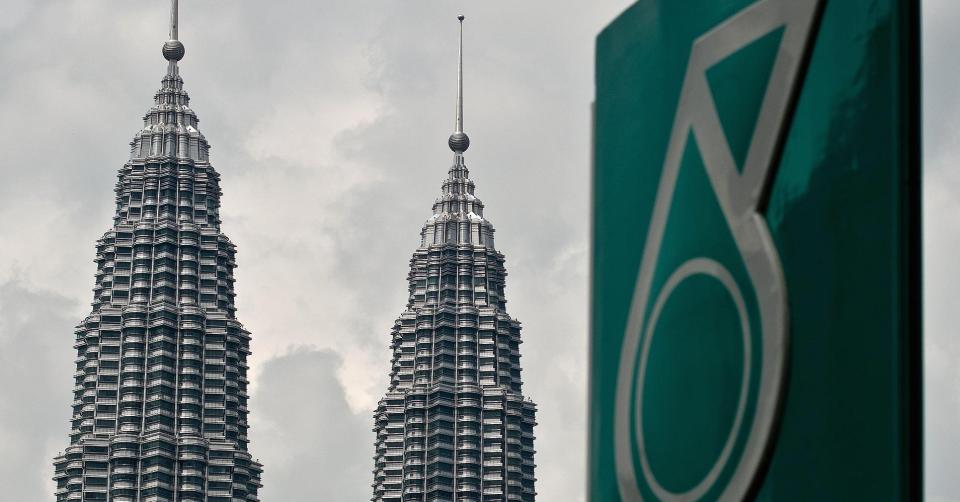As we are stepping into the closing weeks of the year, both the forex and equity markets of Malaysia are experiencing dramatic falls as foreign investors rush to pull out from the country. This leaves a bleak outlook for the country's economy in the coming year.
The weakening ringgit signals the fragility of the national economy. As 30% of the country's spending is reliant on oil, the sharp decline of international oil prices is poised to expose the unhealthy face of our fiscal planning.
This also serves to tell us that our existing economic model will no longer work, and it is now time for us to implement a complete reform.
Even as the prime minister launched the economic transformation programme four years ago, the market-friendly New Economic Model has been largely overlooked. The government still carries on with the obsolete bumiputra-first, labour-intensive economic model.
Prime Minister Datuk Seri Najib Razak stressed during a recent visit to South Korea that Malaysians would learn from the Koreans in overcoming the inhospitable environment through strong willpower and determination.

However, the PM seems to have forgotten to explore the real factors behind South Korea's meteoric rise to economic prominence despite the fact that the country was trailing behind us in the 1960s and 1970s.
During the 1997 financial crisis, South Korea had to seek a loan from the International Monetary Fund (IMF) to weather the crisis. Back then the Korean government and people implemented drastic reforms in the country's financial, corporate, public institutions as well as employer-employee relationships.
In the end, it repaid all the US$19.5 billion loan by August 2001, three years ahead of deadline.
Over here, former PM Tun Dr Mahathir Mohamad imposed the capital control mechanism to tackle the financial crisis. Perhaps some would lift their heads up on mention of this, because at least the country could handle the crisis without a loan from the IMF.
But now we shall see who has the last laugh. Indeed, banking on national pride is a positive force to propel the country forward, but blind pursuit of the same is a bane for our continued progress.
Back to our race-oriented patronage-style economic model. During the better years, especially when oil bounties were thick, we could still offer generous handouts without much difficulty at all. However, with the global economy now in poorer shape, we need to look for a new way out.
We have been embracing the Look East policy from Dr Mahathir's time all the way to Najib's time. But unfortunately, Malaysians have yet to pick up the determination, diligence and innovation of the Japanese or Koreans.
While they have already ventured into the high-tech world, our technologies are still in rudimentary forms. Some 160,970 Malaysian graduates are out of jobs, of whom a whopping 80.28% are bumiputeras.
Many of our patronage schemes, including the awarding of government projects to bumiputera contractors, have suppressed our overall competency, of which the sinking apron at klia2 is a prominent example.
Without pursuing meritocracy, we are at best a middle-income country forever.
According to a survey, the number of millionaires in Malaysia has soared 45.5% over the past four years, owning a 59.6% higher wealth in excess of US$151 billion (approximately RM527 billion).
Kuala Lumpur alone is said to have 13,800 millionaires, among the highest rate in the world for a city. But this is nothing we should take pride in, because it only highlights our widening urban-rural wealth gap.
Unfortunately, many of our ministers have not sensed this crisis. In response to Petronas's statement that its contribution towards the national coffers would likely shrink by 3.7% next year, second finance minister Datuk Chua Tee Yong said the amount of contribution should be determined by the government, not Petronas.
If Petronas does not keep some of its profits for development expenses, oil output will decline. As such, it is irrational for the government to kill the goose that lays the golden eggs.
Also as an oil-producing country, Norway has far better foresight. The Scandinavian nation has set up a sovereign fund for the country's oil wealth, and has so far accumulated more than US$880 million of fund capital.

If we were to divide this number by the country's 5.1 million population, it will translate into a per capita wealth of US$196,000. Norwegian law forbids the government to mobilise more than 4% of money from the fund to ensure future prosperity. Interests derived from the fund will be used to finance education, medical services and R&D initiatives, among others.
Since the oil wells could dry up some day, it is imperative that we manage our oil wealth in a sustainable manner. I do not see any good planning in the way we distribute our oil wealth.
Both the government and people must look at the economy in a more open-minded and liberal fashion.
Hence, hiring a German to helm the national airline is not something shameful. What really puts us to shame is our failure to identify our own mistakes. – mysinchew.com




No comments:
Post a Comment
Note: Only a member of this blog may post a comment.